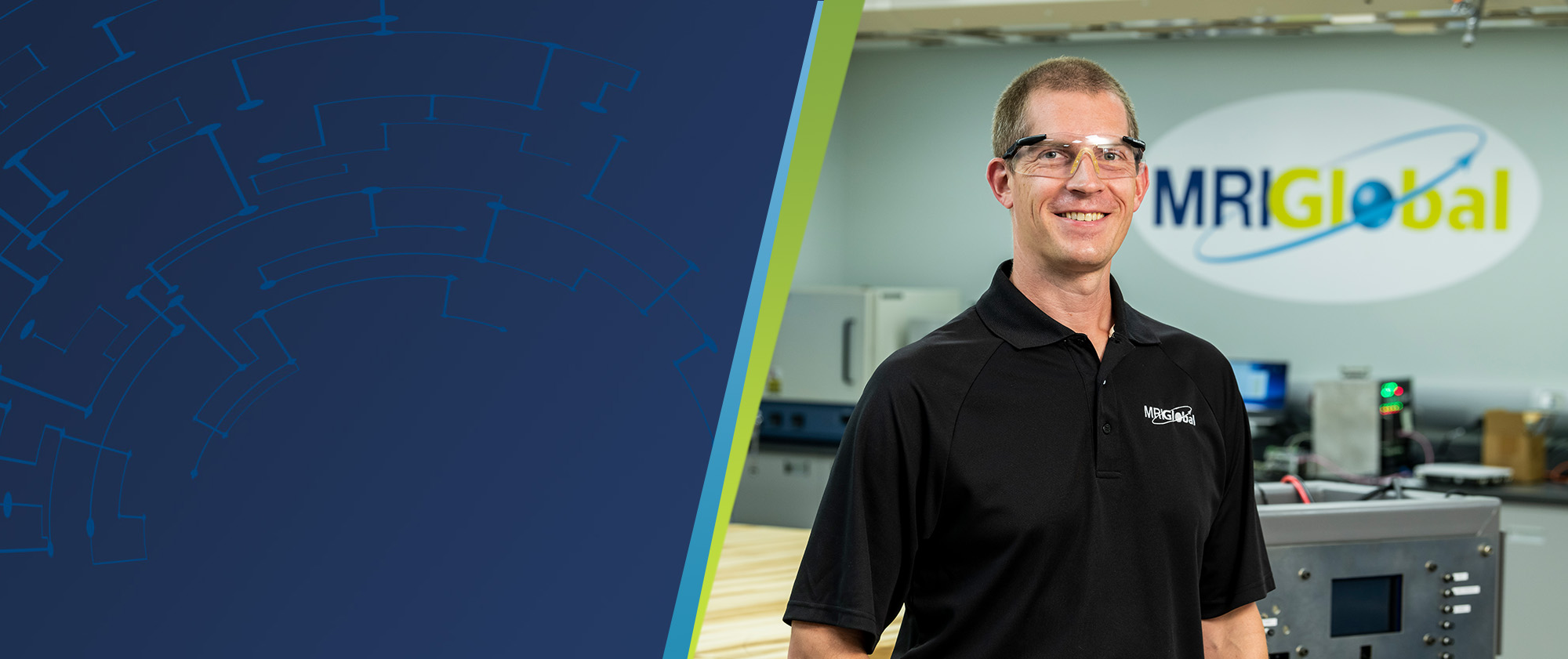Peter Anderson is a Principal Engineer at MRIGlobal. His specialty areas are leading complex technical programs and project management; mechanical systems design, rapid prototype fabrication and electromechanical system design and testing, requirements verification, and 3-D modeling, drafting, animation and rendering. A recognized expert in innovative and efficient systems design, Anderson played a lead role in developing containerized biocontainment air transport solutions for the Department of State and the Department of Defense. These important systems have been deployed for the safe transport of infected individuals from disease outbreak areas to locations where they can receive appropriate care, most recently during the COVID-19 crisis.
When did you know you wanted to be an engineer?
I think that most engineers who love their job were born engineers. That is certainly the case with me. Growing up I always knew I was going to be an engineer, just not quite sure what exact flavor. I loved all things airplanes and spaceships (still do) and would spend countless hours building with Legos. As I got closer to college, I chose to pursue a Mechanical Engineering degree at Kansas State because it would give me the flexibility to work in several different industries. Right out of college I got a job at Cessna designing business jets. I liked the work, but pretty early on I realized I didn’t find it fulfilling. That is when I discovered MRIGlobal and was lucky enough to get hired on. Thirteen years later I’m still here and loving it!
What is your role at MRIGlobal?
I lead the mechanical engineering group at MRIGlobal as well as serve as Principal Investigator on both large and small programs. I get to interact with all sorts of disciplines including the other engineers as well as chemists and biologists, which is part of what makes MRIGlobal so unique. One of the most rewarding programs I have been involved with is the Containerized Bio-Containment System (CBCS), which has been used extensively by the Department of State (DOS) during the pandemic. We actually designed and built the system to respond to the Ebola crisis in 2015, but it has proven to be a critical tool for the DOS enabling them to safely and securely transport highly contagious patients by air during COVID.
What excites you about working at MRIGlobal?
By far the thing that excites me the most about working at MRIGlobal is that whatever the future holds, I know that we will respond to any global challenges because that is just what we do. It might be hard to say exactly what I’ll be working on a year from now, sometimes even 6 months from now, but whatever it is will make a difference in people’s lives. I’m constantly being pushed outside my comfort zone, but I think that is what makes MRIGlobal such a great place to work.
What are your interests outside of work?
I love to travel with my family as much as possible, especially exploring our National Parks. During the pandemic and even before, we’ve gone on some pretty epic road trips. My kids might not love the long hours in the car, but the amazing natural diversity you can discover in the U.S. makes it well worth it. I think being out in nature helps keep me grounded as well and makes me appreciate even more the awesome work we do at MRIGlobal.

